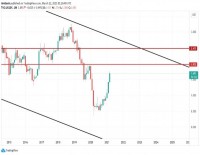|
Opalesque Industry Update - New research from Preqin shows that although discretionary funds tend to outperform systematic funds when
markets are rising, systematic funds can provide benefits in terms of lower volatility and higher risk-adjusted
returns. As such, systematic funds are generally perceived as providing good downside protection to investors
in down markets. Given that a recent Preqin survey of investors highlighted that the majority invest in hedge
funds for uncorrelated returns, risk-adjusted returns or reduced portfolio volatility, rather than high absolute
returns, systematic funds can be an attractive prospect to certain investors. Systematic vs Discretionary Hedge Funds – Key Stats:
Comment: “Discretionary funds have outperformed systematic funds in recent years in terms of absolute returns, taking advantage of the fact that markets during this period have generally been rising. However, our research has shown that systematic hedge funds often outperform discretionary hedge funds whenever markets are falling, which was the case in 2008 and 2011, and these funds also offer benefits to investors in terms of lower volatility and superior risk-adjusted returns. Furthermore, certain systematic fund strategies have provided higher absolute returns over longer time periods compared to their discretionary counterparts. Establishing which type of fund is right for investors very much depends on the fund strategy, the risk profile of the investor and the general market conditions. The majority of hedge fund managers continue to utilize a discretionary approach while most CTAs focus on a systematic strategy, although there is some evidence in both of these cases of more fund managers adopting the alternative approach.” Amy Bensted, Head of Hedge Funds Products Press Release
|
Industry Updates
Systematic hedge funds top risk-adjusted performance ranks - Preqin
Tuesday, June 24, 2014
|
|





 RSS
RSS







